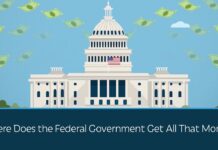
Alexander Tschugguel, founder of the St. Boniface Institute, talks to host Steve Bannon about his new article at Newsweek: “Draconian COVID Measures Are Part of Austria’s Political Nightmare.”
“[We’ve seen] the change of the law which allows the government to introduce imprisonment for contempt… for up to one year. In the Parliament, the government parties were asked, “OK, but now you have to exclude people who got fined because they do not want to get themselves vaccinated from this imprisonment program, and the government said explicitly, ‘no we are not going to exclude them.’ … So not only this very high amount of money… up to 3,600 Euros each time you got sued, and right now they said it’s up to four times a year…. and if you do this a few times, they can even put you in prison up to a year.”
Part 1: Austria Makes It Illegal To Exist Without Vaccine – America Next
Part 2: Be Ready To Sacrifice A Lot Of Things

December 15, 2021 ~ For Austrians—vaccinated and unvaccinated alike—the last few weeks have been a nightmare. Despite politicians assuring everyone over the summer that the pandemic was over, this small country in the heart of Europe is now the first Western state to attempt a general vaccine mandate.
Those who have decided—for a variety of reasons—not to take the vaccine have experienced recent events as pure psychological warfare. Immediately after announcing the mandate, the government and its advisers started to present their ideas of how to enforce it. Minister of Constitutional Affairs Karoline Edtstadler announced that anyone who refuses the vaccine would be fined up to 14,400 Euros a year—enough to ruin an average family.
The result was a wave of protest—around 100,000 people took to the streets in Vienna over the last few weeks—and these demonstrations seem to have had some effect. The latest draft bill only calls for fines of 600 Euros four times a year for every unvaccinated individual—still high enough, though, to hurt many average-income families.
The background to all this is the greatest state of political chaos the country has experienced in decades. Former chancellor Sebastian Kurz was forced to resign two months ago, after massive protests against his authoritarian pandemic policies and a number of serious allegations of corruption. His downfall was triggered by the publication of WhatsApp messages in which Kurz and his closest advisers discussed the appointment of their friends to high positions in state-affiliated companies, the manipulation of opinion poll results and ways to exert psychological pressure on a representative of the Catholic Bishops’ Conference who had criticized the government. In these messages, they referred to the Austrian people as “riffraff” and “animals.”
Kurz is now facing a number of criminal charges, including one for lying to a parliamentary committee of inquiry. He was succeeded as chancellor by the foreign minister, Alexander Schallenberg, who promptly announced the vaccine mandate. The huge protests against his policies made an impact—after less than 60 days in office, he is now history.
The new chancellor is the former minister of the interior, Karl Nehammer, who is now intent on leading Austria from the frying pan into the fire. This great political leader is not only the most unpopular politician within living memory—he is also someone the international community would be well advised to keep a very careful eye on.
On his watch, authorities tried to ban a protest against the government’s coronavirus policies on April 24 of this year. Freedom of assembly is, however, a fundamental right guaranteed by the Austrian Constitution, and the courts struck the ban down. Nehammer did not take his defeat lying down, though—thwarted in his attempt to have the demonstrations banned, he deliberately proceeded to spread fake news about the protesters, claiming that they had attempted to storm an insurance building and even the Parliament. Both claims were proven to be false—he was forced to retract them publicly.
By Alexander Tschugguel, President, St. Boniface Institute













































